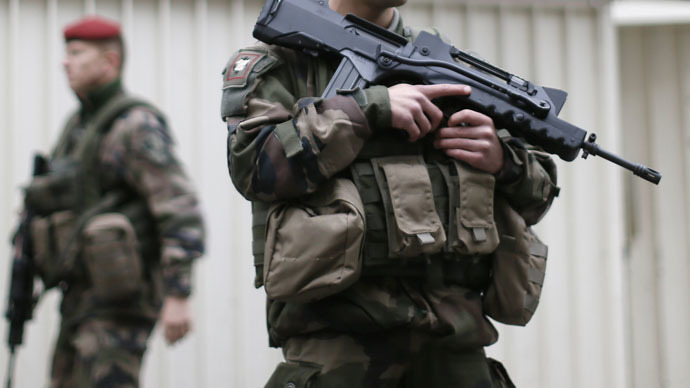‘EU dreams about single army to move towards United States of Europe’

The EU army initiative might provoke fury among Euro-skeptic politicians as they see it as part of the EU’s agenda for more power and centralization, Dr. Richard Wellings, Deputy Editorial Director at the Institute of Economic Affairs, told RT.
European Commission President Jean-Claude Juncker says the EU needs an army of its own. Germany and Finland say they are on board with the idea. The initiative could be added to the agenda of an EU summit in June.
RT:Let's discuss the financial side of this proposal, firstly. Can the EU afford an army at the moment?
Dr. Richard Wellings: Well certainly some of the bankrupt European countries can’t afford an army. But of course the danger is here that they could be quite keen on this idea because they could get a free ride on the Germans. So basically the Germans could spend the bulk of their defense expenditure enabling countries like Greece, Italy and Spain to make big cuts in their defense spending which could of course help them balance the books in the long-term. But I’m not convinced this kind of one-size-fits-all policy is going to be any more successful than a one-size-fits-all policy in the economic spheres. I think there are big dangers here.
READ MORE: Costly ‘paper tiger’: EU army plans under scrutiny for financial reasons
RT:NATO is part-funded by European nations; won't that fighting force be competing for money with an EU army if it is eventually set up?
RW: I think there are all kinds of implications for the NATO alliance here. I think the timing of this announcement by Mr. Juncker is very interesting because of course we now see some tensions emerge between the German government and the NATO high command on their approach to Ukraine. So I think this could be in essence a shot across the bows of NATO, saying to the US that “we want to have a greater say of NATO’s policies are.”
RT:Both Germany and Finland are backing the idea. Do you think we will see the same willingness from other member states as well?
RW: I think it will vary. Possibly some European countries will be fairly keen as I said before because of some potential for budget savings. But I think it will provoke absolute fury among a lot of British politicians, particularly on the Euro-skeptic side of things. Of course they see this quite clearly as part of the EU’s long-term agenda for more power and centralization, ever closer union. So they’ve got their single market, their single currency and now a big part of their dream is their single army to move towards the United States of Europe. So obviously they are going to see the long term dangers of this.
RT:David Cameron has spoken against the idea. Why is the UK so opposed to it?
RW: Obviously the UK is very close to the US in a sense that part of the UK’s role is to keep the union trans-Atlantically allied to the US. Obviously the UK would worry that an EU army could potentially in the long run push the Americans out of Europe and create tension with NATO. In essence the UK is very much America’s representative within the EU.
The statements, views and opinions expressed in this column are solely those of the author and do not necessarily represent those of RT.
The statements, views and opinions expressed in this column are solely those of the author and do not necessarily represent those of RT.












